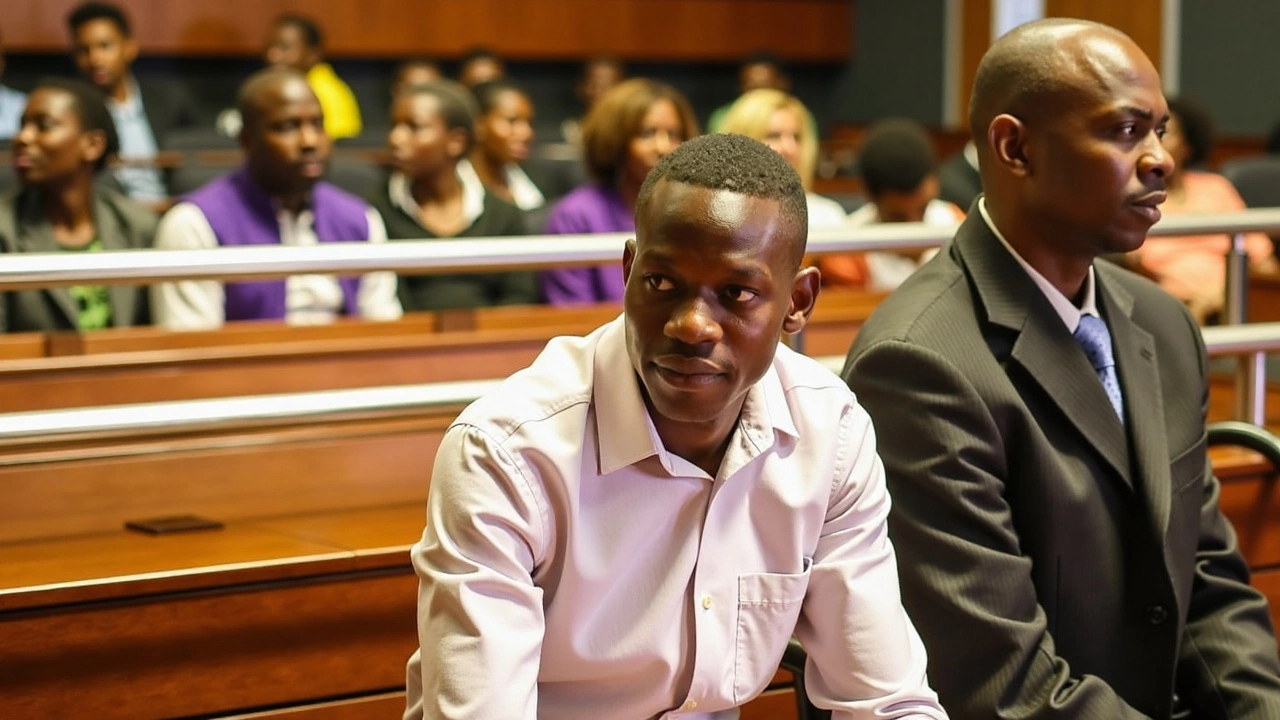- Tyson Fury Contemplates Future After Losing to Usyk, Hints at a Monumental Anthony Joshua Showdown May 19, 2024
- Thunderbolts Review: Marvel Rediscovers Its Spark With a Gritty, Hilarious Adventure Apr 30, 2025
- Liverpool in Pursuit of Juventus Star Federico Chiesa: Latest Transfer Update Aug 27, 2024
- Dortmund Stuns Copenhagen 4-2 on Matchday 3 of 2025-26 Champions League Oct 22, 2025
- Kerala Teen Dies After Consuming Local Fruit, Linked to Nipah Virus Jul 22, 2024
Bail Application: How It Works and What You Need to Know
Bail lets a person charged with an offence leave custody while they wait for trial. Courts set bail to balance public safety and the right to liberty. If you or someone you know faces charges, understanding bail rules can speed up release and reduce stress.
Who decides bail? A magistrate or judge hears the bail application, often on the first court appearance. They check the charge, criminal record, flight risk, ties to the community, and any safety concerns. Police or prosecutors may oppose bail, especially in serious cases.
How to apply
Start by filing a formal bail application at the relevant court. You can apply in person or through a lawyer. The application should explain why the accused will attend future hearings and why release won’t harm the public or witnesses. Useful documents include ID, proof of address, employment details, and character references.
If the court orders bail, it may set conditions: a cash amount, a surety (someone who guarantees attendance), travel restrictions, reporting to a police station, or electronic monitoring. Meet these conditions quickly—missing one can cancel bail and lead to re-arrest.
Practical tips and common traps
Hire a lawyer if you can. A lawyer knows what evidence to present and how to argue conditions down. If money is tight, ask about bail bonds or surety services. In many places family members act as sureties by pledging property or cash.
Don’t assume bail equals freedom-of-action. Conditions matter. Avoid contacting alleged victims, changing address, or traveling without permission. Keep proof of compliance like check-in receipts or travel permits. If circumstances change—like a job loss or new address—tell your lawyer and the court before it becomes a problem.
Bail can be denied for indictable or serious offences, repeat offenders, or strong flight risk. If denied, you can ask for a review or appeal. Reviews are time-sensitive; act fast and get legal help. Courts can also vary bail terms later if you show changed circumstances.
What about finances? Cash bail can be high. A bail bond company can post bail for a fee, usually non-refundable. Some courts allow property or bank guarantees instead of cash. Know the local rules—options vary by country and region.
Bail conditions are enforced. Missing a court date, breaching conditions, or committing another offence can lead to bail revocation and new charges. If police try to re-arrest you on a technical breach, contact your lawyer immediately and gather proof you complied.
Bail also affects the wider picture: it keeps family life, work, and schooling intact while the case runs. For students or educators, quick release can prevent missed semesters and job losses. Finally, keep records of every step—applications, receipts, and communications. They protect you if disputes arise later.
Quick checklist: bring ID, proof of address, two referees, employment letter, and any bail-ready funds. Write down court dates and set reminders. Keep phone numbers for your lawyer and surety handy. If you travel for work, get court permission in writing before leaving the area.
Stay informed.
Pastor Paseka 'Mboro' Motsoeneng's Bail Hearing: A Pivotal Moment in His Legal Battle
- Katlego Sean Mahaye
- Sep 13, 2024
Pastor Paseka 'Mboro' Motsoeneng appears at Palm Ridge Magistrate's Court for a critical bail hearing. The case has drawn significant public interest as it could determine his immediate future. The court will examine the charges, his previous behavior, and other factors to decide whether he will be released pending further legal proceedings.
